Search Images
Browse Content (p. 401)
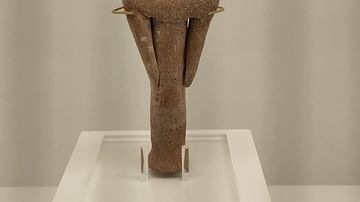
Image
Cypriot Figurine of a Standing Male Wearing a High Tiara
From Cyprus (Cypriot workshop). Cypro-Archaic I Period, 7th-century BCE. Made from clay. (Hellenic Museum, Melbourne, Victoria).
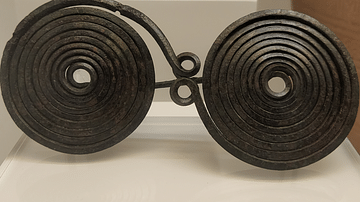
Image
Spectacle Fibula with Spiral Discs
This fibula (spiral brooch) is made from a single piece of coiled bronze and would have been used to fasten two halves of a garment at the shoulder. Perhaps from Macedonia. 10th-8th century BCE. (Hellenic Museum, Melbourne, Victoria).
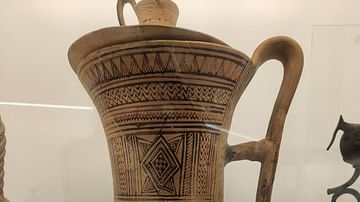
Image
Attic Large Geometric Pitcher with Lid
This pitcher is decorated with linear motifs and horses in successive zones. Vases of this class were used as cinerary urns in Attic burials during the Late Geometric Period. Found in an Attic workshop. Late Geometric II Period (735-720 BCE...
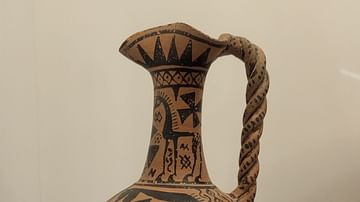
Image
Trefoil-Mouth Oinochoe
This vase is decorated with horses and a host of filling motifs. Most of the subjects derive from the Geometric tradition that continued to influence early Orientalising workshops in the 7th Century BCE. From Skyros, Sporades, 675-650 BCE...
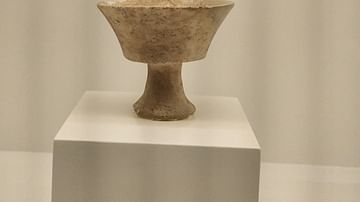
Image
Cycladic Footed Cup
Vessels of this type are counted among those intended exclusively for funerary use during the Early Cycladic Period. Early Cycladic II Period, (2700-2300 BCE). Made from marble. (Hellenic Museum, Melbourne, Victoria).
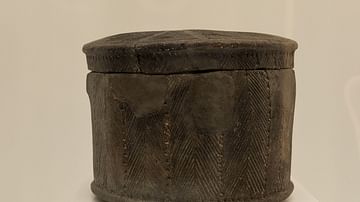
Image
Cycladic Cylindrical Pyxis with Lid
This vessel is decorated with an incised herring-bone pattern. The pyxis, commonly used in burials of the Early Cycladic I Period, was probably used as a container for jewellery or other small items. Early Cycladic I Period (3200-2700...
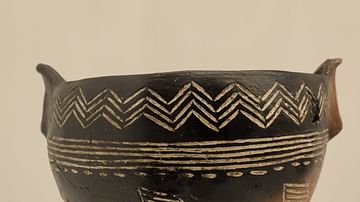
Image
Cypriot Black-Topped Tulip-Shaped Bowl
The dense incised decoration is infilled with white paste in order to create a chromatic effect. Bowls of this type were probably used for carrying liquids, while their round bases indicate their setting in hollows in the floor. Red polished...
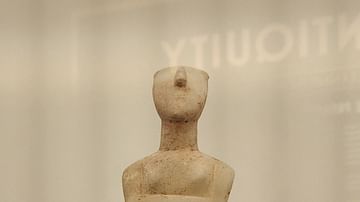
Image
Cycladic Female Figurine
A Cycladic female figurine of the 'folded-arm' type. Early Spedos Variety. Attributed to the Fitzwilliam Master, Early Cycladic II Period (2700-2300 BCE). Made from marble. The red pigment (found on the neck and head) is from cinnabar...
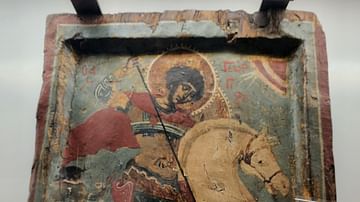
Image
St George Slaying the Dragon
St George slaying the dragon. From a Macedonian workshop. Made from wood and egg tempera. Dating to the second half of the 16th century. (Hellenic Museum, Melbourne, Victoria).
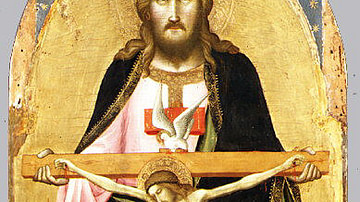
Image
The Trinity
The Trinity, tempera on wood painting by Agnolo Gaddi, c. 1390-96.
Metropolitan Museum of Art, New York.